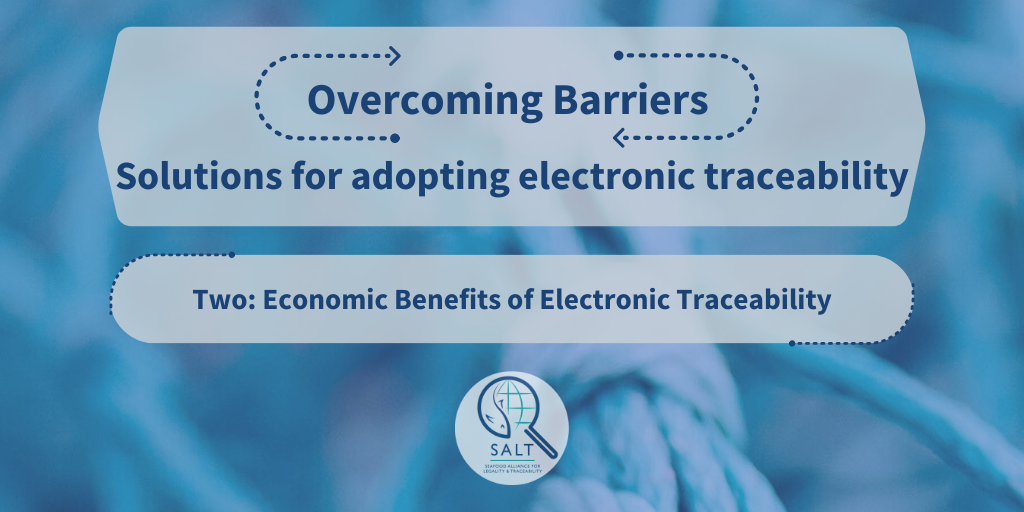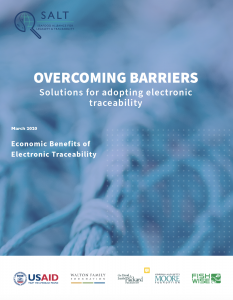
Chapter two in SALT's "Overcoming Barriers" series on adopting electronic traceability
Economic Benefits of Electronic Traceability
Introduction
Illegal, unreported, and unregulated (IUU) fishing damages fish stocks around the globe. Additionally, illegal fishing practices can sometimes occur alongside human rights abuses. Now, the world is waking up to these injustices. Government import regulations are working to ensure illegal products don’t enter their national markets, and some consumers are voicing their preference for certified and sustainably harvested fish1.
Thankfully, companies currently deliberating making the switch to electronic traceability are not the first companies to undergo this conversion. The trailblazers who have piloted electronic traceability, along with their NGO partners, have written case studies, described solutions that helped them overcome obstacles, and created tools to make the process easier for others. Here, SALT has distilled this information to walk the seafood industry through the barriers to adopting electronic traceability and provide potential solutions to overcoming the challenges a company might face. This blog is the second in the series, “Overcoming Barriers: Solutions for adopting electronic traceability.”

In the previous “Overcoming Barriers” blog, SALT addressed the indirect benefits for industry when widespread electronic traceability is adopted -such as the potential for improved fisheries management, greater social responsibility, and women’s empowerment, all of which can also help improve a business’s bottom line. In this blog, SALT covers the direct benefits to industry from electronic traceability – namely, the economic advantages – and suggests helpful tools to use when considering the cost of implementation. These economic advantages relate to:
- Regulatory compliance
- Food safety assurance
- Strengthened brand reputation
- Increased operational efficiency
To read the rest of the blog, you can find it here:

